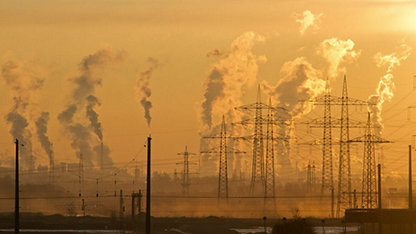This year’s Conference of the Parties (COP26) takes place in Glasgow, convening leaders from around the world to accelerate action towards the goals of the Paris Agreement, and the UN Framework Convention on Climate Change. Chartered surveyors play a pivotal role in addressing the challenges of climate change by providing the data to drive decarbonisation across the whole lifecycle of the built and natural environment. A number of announcements have been made so far, the following list offers a deeper dive into the impact for the profession.
Deforestation
More than 100 world leaders have promised to end and reverse deforestation by 2030, with the countries who have signed the pledge, including Brazil, Canada and Russia, housing an estimated 85% of the world’s forests. With land surveyors working in geomatics being essential to accurately measuring and analysing existing forests globally, their work will likely be critical to providing consistent mapping data over time on the number of trees being felled, and planted in their place.
Methane
Another important announcement from the conference was the commitment by around 90 countries, led by US President Joe Biden, to reduce their methane emissions by 30% by 2030. It is hoped that 75% of global methane emissions will be covered by this global pledge. Significant methane gas emissions come from agriculture, both the farming of livestock and paddy rice cultivation. Both environmental surveyors and rural surveyors will have a role in advising landowners how best to continue to run a viable business whilst working to meet these targets.
UK mandatory climate disclosures
The UK Government has announced new legislation that will make it mandatory for the UK’s largest companies to disclose their climate-related risks and opportunities from April 2022, subject to Parliamentary approval. It will make the UK the first G20 country to introduce these mandatory disclosures, which will be in line with Taskforce on Climate-related Disclosures (TCFD) recommendations. The announcement highlights the growing need for better visibility of climate impacts and the role this profession can play within that, such as through initiatives like ICMS3 which will bring a globally consistent method for carbon life cycle reporting across construction projects.
Estimated $130 trillion private capital for net zero
It was announced that over $130 trillion of capital has been mobilised to achieve net zero targets through commitments from the financial sector. The Glasgow Financial Alliance for Net Zero (GFANZ) was launched earlier this year by former Bank of England Governor and UN Special Envoy for Climate Action and Finance Mark Carney, and published the figure which is said to come from commitments across 450 firms in 45 countries, grounded in science based targets.
New country-specific net-zero pledges
India has updated its targets for low-carbon power by 2030, committing to being net zero by 2070, while Saudi Arabi and China are both aiming for carbon neutrality by 2060. In the days leading up to COP26, Australia’s PM Scott Morrison pledged to reach net zero by 2050, underpinned by an updated ‘technology roadmap’ prioritising investment in clean energy production, and storage. In Ireland, Prime Minister Michael Martin has set out plan of around 1000 measures to reduce greenhouse gas emissions in the country, including retrofitting 500,000 homes by 2030. Whilst some of these targets have been critiqued by some for not being as ambitious as other nations, they will no doubt provide a framework for action across industries which are relevant for RICS professionals working within or for clients within these countries.












